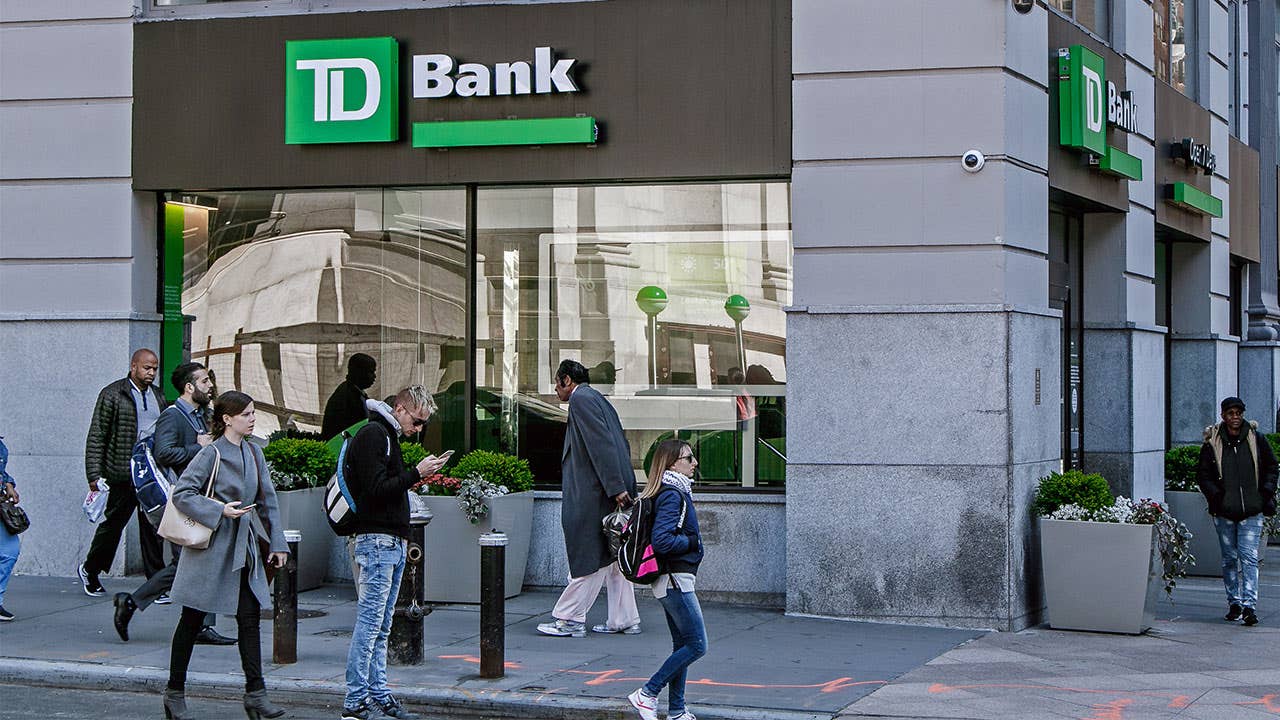How many bank accounts should you have?

The Bankrate promise
At Bankrate we strive to help you make smarter financial decisions. While we adhere to strict , this post may contain references to products from our partners. Here's an explanation for .
Having too many bank accounts can make keeping track of them overwhelming. Different accounts can help you achieve and organize your financial goals, though it’s important that each account has its own purpose. The strategy of connecting each account with an intent can prevent you from having too many accounts.
Here are bank accounts that you may want to consider.
- Checking
- Savings
- Money market
- Certificate of deposit (CD)
- No-penalty CD
1. Checking account
Many consumers have their paychecks or other income deposited into a checking account. Once you receive your money, you can use it to pay bills and other expenses. You can use a debit card, checks, a peer-to-peer service such as Zelle or online bill to pay for items or to pay others.
Some checking accounts earn interest, but most don’t earn any or they don’t earn a significant amount of interest compared with high-yield savings accounts.
Most checking accounts allow you to access your money from an ATM.
2. Savings account
A savings account is an account that earns interest on the balance. High-yield savings account typically pay higher rates than regular savings accounts. Regular savings accounts usually have annual percentage yields (APYs) that are below the national average. Brick-and-mortar banks usually have savings accounts with rates below the national average. Online banks are where you can find some of the best savings yields.
Unlike checking accounts, savings accounts aren’t meant for lots of transactions in a month. Some banks may even limit the ability to withdraw or transfer money from a savings account more than six times in a monthly statement cycle.
Some savings accounts permit ATM access.
3. Money market account
Money market and savings accounts are similar. Both are savings deposit accounts that might have limits on the number of monthly withdrawals and transfers that can be made without a fee. The biggest difference is that money market accounts may have check-writing privileges, so you can conveniently write checks to others. Money market accounts might also come with a debit card and you might be able to access your money from an ATM.
4. CD
A CD is a bank account to store longer-term money. A CD’s term is the amount of time that you have to wait to access your money in a CD without paying an early withdrawal penalty. Since your money is supposed to stay in a CD for a certain period, you’re rewarded with a yield that may be higher than a high-yield savings account. But a high yield depends on the term and the bank. Like other accounts, online banks usually offer the best CD rates.
Withdrawing money before the CD term is up can cost between 60 days of interest and six months’ worth of interest at some banks, so it’s important to pick a term that coincides with when you expect to need the money to avoid an early withdrawal penalty. Typical CD terms range from three months to five years.
5. No-penalty CD
A no-penalty CD is like a hybrid between a savings account and CD. No-penalty CDs and savings accounts usually don’t charge a fee for withdrawing money. There’s one exception for no-penalty CDs: during the first six days withdrawals usually aren’t permitted without a penalty. After the first six days, typically there is no penalty for withdrawals with a no-penalty CD.
Look for free accounts
Almost half of checking accounts are free, according to Bankrate’s 2021 checking account and ATM fee study. Free checking accounts give many consumers access to checking accounts since they don’t require a minimum balance and they don’t charge a monthly service fee. Noninterest checking accounts charge an average monthly service fee of $5.08, according to the study.
The best free accounts are at banks that don’t charge overdraft fees and financial institutions that have large ATM networks.
How many accounts is best?
Think minimalism when choosing accounts.
“If you can open one less account, do it,” says Conrad Ciccotello, a professor of finance at the University of Denver.
You may want to have at least one checking account and potentially one savings account.
Couples often maintain a joint checking and savings account for household finances, and they may each maintain a separate checking account for personal expenses.
Multiple savings accounts can help you save for multiple goals. For instance, a savings account outside of your emergency fund can help you save for a different goal.
Setting up a direct deposit into a savings account can automate the process of saving for a goal.
You may want to give it a name to make the savings goal more tangible, for example, Dream Vacation Fund.
A CD can also be considered for longer-term goals. The benefits of a CD are that it may earn more interest and the early withdrawal penalty can act as a deterrent, discouraging you from taking the money out before the account has matured.
The benefits of having multiple accounts
Commingling money makes it easier to spend savings earmarked for another purpose, which is where having multiple accounts comes in handy. You can divide money into separate accounts for different savings goals. Having multiple accounts is useful, but watch for fees. Look for accounts that charge no monthly maintenance fees and have no minimum balance requirements — they’re easy to find.
Tips for opening and closing bank accounts
Research any new account before opening it. Read the account agreement, disclosures and other relevant information to avoid any potential problems or misunderstandings. Be sure to ask any questions before opening the account.
If you’re using an existing account to fund the new one, inform the bank if you intend to close it. Simply leaving the account balance at zero can cause a domino effect of maintenance fees and overdraft fees.
Bottom line
Choose your bank accounts carefully. Consider assigning a purpose to each account so that you open and maintain only those you need. Having too many accounts could cause you to accumulate fees if you don’t monitor them closely.
There’s a chance you might not need a checking account, a savings account, a money market account and a CD, but at the least, consider a checking account, for paying bills, and a savings account, to help you achieve your financial goals.
Related Articles


How much money you could be missing out on with a low-APY savings account

